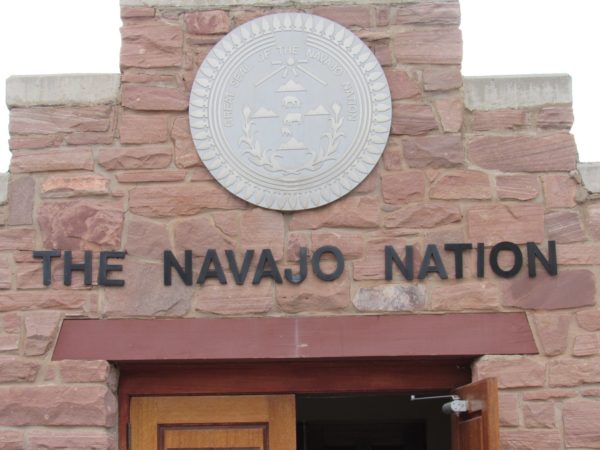
- Details
- By Native News Online Staff
WINDOW ROCK, Ariz. — On Monday, the Navajo Department of Health, in coordination with the Navajo Epidemiology Center and the Navajo Area Indian Health Service, reported 24 new COVID-19 positive cases for the Navajo Nation and no recent deaths. The total number of deaths remains 422 as previously reported on Sunday.
Reports indicate that approximately 6,369 individuals have recovered from COVID-19. 73,684 people have been tested for COVID-19. The total number of COVID-19 positive cases for the Navajo Nation is 8,617.
Navajo Nation COVID-19 positive cases by Service Unit:
- Chinle Service Unit: 2,153
- Crownpoint Service Unit: 734
- Ft. Defiance Service Unit: 582
- Gallup Service Unit: 1,402
- Kayenta Service Unit: 1,217
- Shiprock Service Unit: 1,357
- Tuba City Service Unit: 794
- Winslow Service Unit: 375
* Three residences with COVID-19 positive cases are not specific enough to place them accurately in a Service Unit.
The Navajo Department of Health has issued Public Health Emergency Order No. 2020-018, implementing two additional 57-hour weekend lockdowns from July 24, 2020 to July 27, 2020 and from July 31, 2020 to August 3, 2020, starting at 8:00 P.M. MDT on Friday and ending at 5:00 A.M. MDT on Monday. A separate order is being developed to require residents that travel to “hotspots” to quarantine for 14 days when they return to the Navajo Nation.
“As leaders we have to make tough decisions. In this case, we continue to listen to the health care experts and to rely on the data. Our numbers on the Navajo Nation are improving day by day, but we have to also look at the data in surrounding towns and cities. Based on what we are seeing, it is far too soon to lift the weekend lockdowns. We have to keep fighting this virus. The last thing we want is to have another spike, our health care system would suffer tremendously from another spike in new cases. That’s why we are continuing the weekend lockdowns, and telling our people to keep wearing masks in public, staying home, washing your hands, practicing social distancing, and praying for our people,” Navajo Nation President Jonathan Nez said on Monday.
The Navajo Nation’s Stay at Home Order remains in effect requiring all individuals on the Navajo Nation to stay at home and strictly limit movement, and limit public contact with others. Individuals may leave their place of residence only for emergencies or to perform "Essential Activities.” The daily curfew also remains in effect from 8:00 p.m. to 5:00 a.m. on weekdays.
To Donate to the Navajo Nation
For More Information
For more information including reports, helpful prevention tips, and more resources, please visit the Navajo Department of Health’s COVID-19 website. To contact the main Navajo Health Command Operations Center, please call (928) 871-7014
For up to date information on impact the coronavirus pandemic is having in the United States and around the world, visit the Worldometers website.
For up-to-date information about COVID-19, Native News Online encourages you to go to Indian Health Service’s COVID-19 webpage.
The Nez-Lizer Administration is also working with businesses to setup food donation drop-off sites at grocery stores to allow Navajo Nation residents to contribute non-perishable food items, which will be made available to Navajo people and others living in the Phoenix area as a way to give back to our relatives and friends of the Navajo Nation who graciously donated essential items to the Navajo Nation.
More Stories Like This
Native News Weekly (August 25, 2024): D.C. BriefsUS Presidents in Their Own Words Concerning American Indians
Next on Native Bidaské: Preserving Indian Health with A.C. Locklear
Hozhonigo Institute Helps Drive $34.5M in Grant Pipeline for Tribal Communities
Torres, LaMalfa Lead Push to Safeguard Culturally Important Tribal Seed Varieties
Help us defend tribal sovereignty.
At Native News Online, our mission is rooted in telling the stories that strengthen sovereignty and uplift Indigenous voices — not just at year’s end, but every single day.
Because of your generosity last year, we were able to keep our reporters on the ground in tribal communities, at national gatherings and in the halls of Congress — covering the issues that matter most to Indian Country: sovereignty, culture, education, health and economic opportunity.
That support sustained us through a tough year in 2025. Now, as we look to the year ahead, we need your help right now to ensure warrior journalism remains strong — reporting that defends tribal sovereignty, amplifies Native truth, and holds power accountable.
 The stakes couldn't be higher. Your support keeps Native voices heard, Native stories told and Native sovereignty defended.
The stakes couldn't be higher. Your support keeps Native voices heard, Native stories told and Native sovereignty defended.
Stand with Warrior Journalism today.
Levi Rickert (Potawatomi), Editor & Publisher

